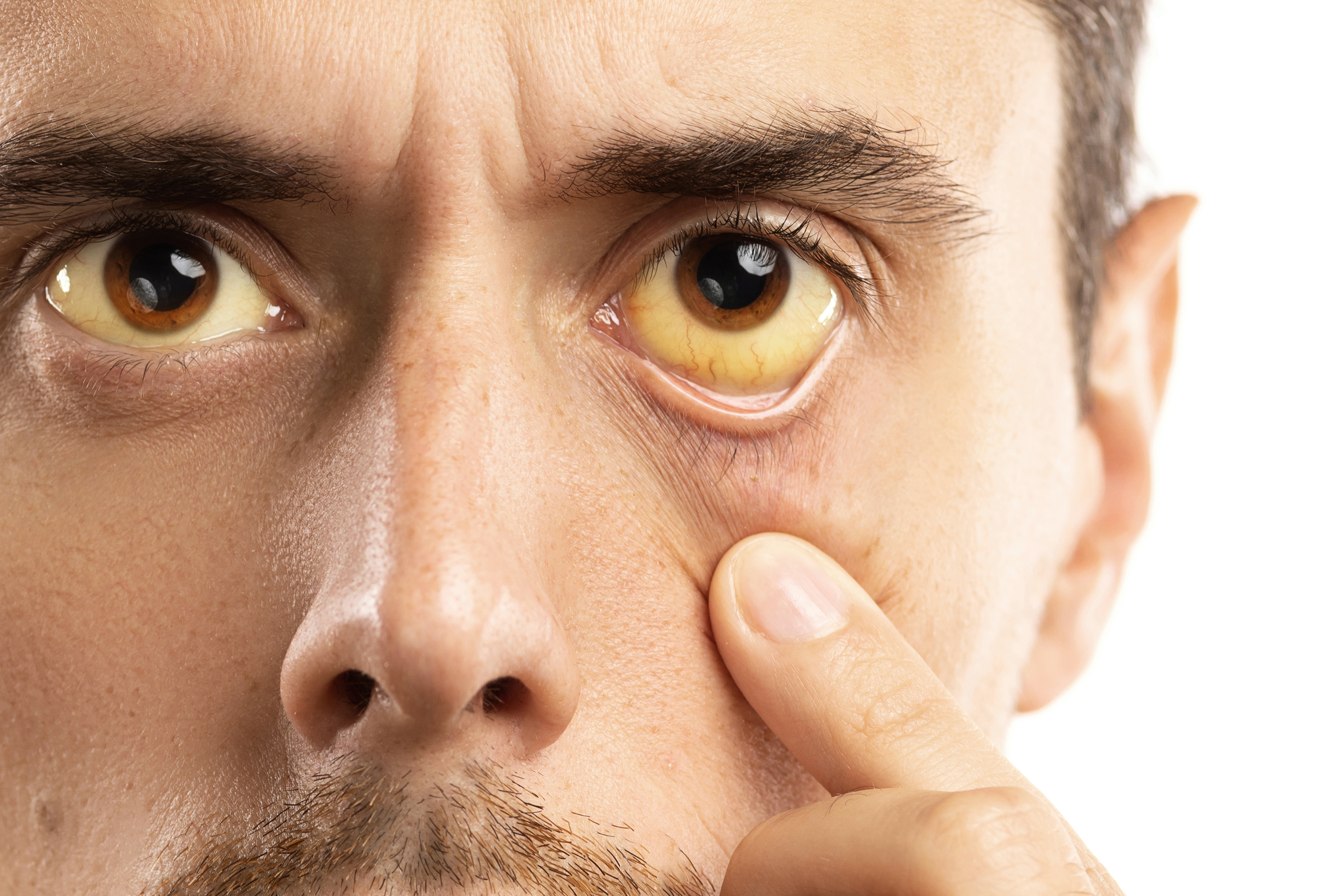Potential Indicators of Lung Cancer: Recognizing Early Signs is Key
11. Jaundice

Some patients may experience jaundice as an indication they have lung cancer. Jaundice typically occurs in cases where primary lung cancer has reached an advanced stage. When lung cancer spreads, the pancreas is one of the most common organs affected. The mechanism that explains why lung cancer metastasizes to the pancreas more often than other organs in the body is not clear. However, when the malignancy creates a lesion in the head of the pancreas, the ducts that lead from the liver and pancreas to the small intestine can become blocked. The biliary ducts are responsible for the release of bile from the liver to the small intestine so it can be used in digestion. When a cancerous growth in the pancreas stops the flow of bile into the small intestine, bile accumulates in the gallbladder and liver. Once both of those organs are at capacity, the bile will leak into a patient's bloodstream and skin. Because bile has a strong yellowish pigment to it, the affected individual will experience jaundice or yellow tinted skin and yellowing of the white parts of their eyes.
12. Wheezing

A common symptom that occurs in lung cancer patients is wheezing, which is a high-pitched whistling noise made while an individual is breathing. Wheezing is often accompanied by difficulty breathing or breathlessness in those who have lung cancer. Wheezing can happen when an individual inhales, exhales, or both. The high-pitched sound is the result of narrowing and inflammation of any location within the airway from the lower throat to the tiny air sacs in the lungs. Because lung cancer is a mass of rapidly multiplying cells in a location where they do not belong, they compress healthy tissues of the lungs. Compression and obstruction of the small branches deep in the lungs can cause an individual to make wheezing sounds, as well as compression or obstruction of the larger branches of the lungs. Often times, patients will initially be treated with bronchodilators, which are medications to expand the airways in the lungs. However, the wheezing that occurs in patients with a physical obstruction due to lung cancer will not respond well to this type of medication because the wheezing is not caused by inflammation alone.
